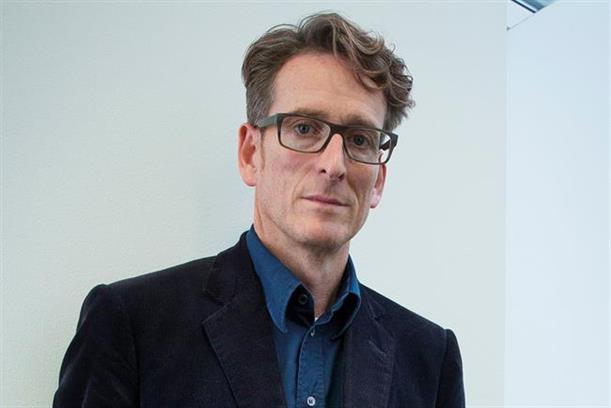I'm gradually becoming less Scrooge-like as the years roll on – admittedly from a moderately high base.
And, having re-read A Christmas Carol, I'm rather pleased about this. Up until now, I've seen my de-Scroogification as a worrying sign that I might be getting more southern. In fact, before his epiphany, Scrooge had very little going for him. De-Scrooging is good. And not remotely southern. It would be perfectly acceptable in, say, Leeds or Sheffield.
Yet I think, as an industry, we have got ourselves well and truly stuck in Scrooge mode. I had to answer a question in an industry survey recently that was phrased: "Why is advertising still a brilliant business to be in?" The "still" is telling. It presupposes a narrative of decline, deterioration and disillusion. Things were so much better way back then; it's all going to the dogs. Frankly, is it "still" worth bothering? Bah humbug.
This narrative needs an epiphany. Because, like Scrooge, it's wrong. And, like Scrooge, it can do serious damage to the ad family, just like Ebenezer's treatment of the Cratchit family.
It's wrong in five ways.
First, it's wrong to suggest that the product is worse. There are "still" fantastic TV ads being made and, yes, there are plenty of shockers. It was ever thus. I would say people talk about ads more now than they did 20 years ago, because ads are bolder, more ambitious and higher order than ever before. "Rang-tan" didn't even run and millions of views. Everyone (bar the Scrooges) loves the Elton ad. And the most popular ad campaign of all time (according to a national survey in the Daily Mail) is still running. Modesty prevents me from naming it.
Second, not only is the "traditional" creative product as good if not better than before, we have so many more ways to be creative, with a canvas that has widened beyond recognition, taking in online content, websites, social media, app development, experience design, sponsorship, brand activation and whole new technologies such as augmented reality. What is not to like about this? Who wants to go back to radio, TV and print? It would be like going back to spam, spam and spam.
One of my favourite bits of work from VCCP in recent months is the Look & Book mechanic for easyJet. When you're thumbing through Instagram, looking at gorgeous photos of glorious Mediterranean beaches, Look & Book lets you screen-grab the photo, run it through the image finder and, in less than a minute, a pin will be dropped in the precise location, the nearest airport will be identified and the cheapest easyJet flights will be listed for you to choose from. The medium is the message is the sale. Un-bah, un-humbug.
Third, the machines aren't going to take over. New technology is invariably greeted by siren voices and dire predictions. Video was going to kill cinema; in fact, it coincided with cinema's renaissance. The synthesiser was going to kill acoustic music; in fact, it triggered its revival. Digital media was going to kill traditional media; in fact, more is spent on traditional media than ever before. Labour-saving devices were going to kill employment opportunities; in fact, more people are in work than at any point in our history.
Various parts of the advertising trade will continue to be automated, and some aspects of communication will be machine generated, whether that is webchat, online navigation or preformatted tactical messaging. This shouldn't distract from the fact that, thanks to the proliferation of media and communications opportunities, we have more scope to be more creative than ever before. And those opportunities, by definition, will be more interesting and rewarding than the routine, prosaic functions that can be automated.
Fourth, it is wrong to say that advertising is becoming less attractive to the next generation of talent. In fact, agency land is still popular and, I would argue, becoming more rather than less accessible to young, motivated people. It is also becoming, gradually, more inclusive. As an introduction to advertising, we have run a VCCP Ad School twice a year for the past five years for young people of all backgrounds. The number of applicants grows and grows. Most switched-on agencies are also reviewing their "graduate" recruitment policy to remove bias. At VCCP, it is now an entry scheme, favouring aptitude over expensive academic qualifications. There is a long way to go in making our industry more inclusive and diverse, but we are moving in the right direction. We Scroogify ourselves if we look too far into the past, not the future.
Fifthly, big data is not killing creativity. This argument is way past its sell-by date, not least due to the fantastic efforts of Binet, Field, Sharp, Shotton, Sutherland et al. The Maths Men are not the enemies of the Mad Men; they are allies. Data heightens the need for compelling brand storytelling rather than diminishing it. Without a powerful story arc, the hyper-targeted micro-messaging of the Maths Men moves from nudge to nag. We all know the kind of brand that tries to chisel us without first trying to persuade us. And we all see how they go out of business. We also see how the most valuable brand in history is built primarily using TV and posters. Although it is also rather good at personalised tech.
So, let us banish our inner Scrooges. Because Scrooge isn't just for Christmas, he's a metaphor for life. What Dickens was saying is that our thoughts define our actions. The more we talk down our industry, the more we risk making it a self-fulfilling prophecy.
Charles Vallance is the founder and chairman of VCCP


